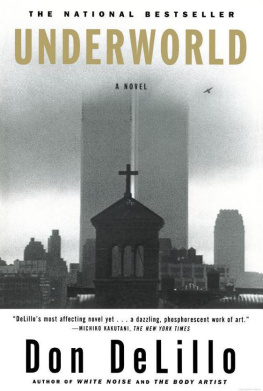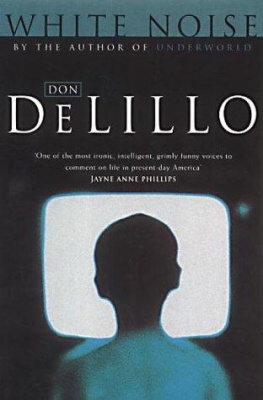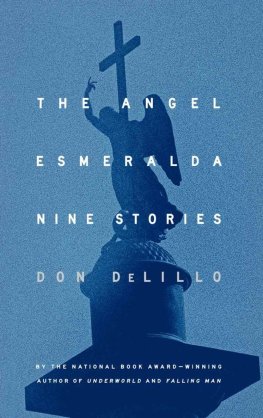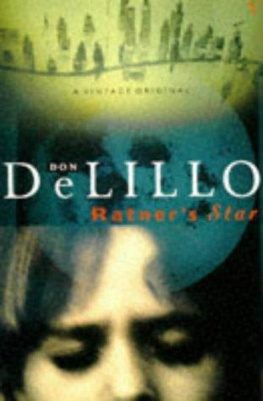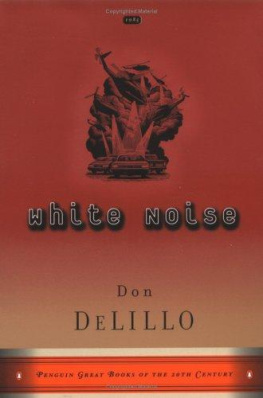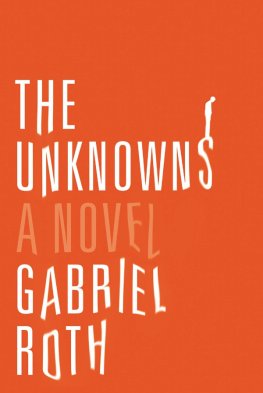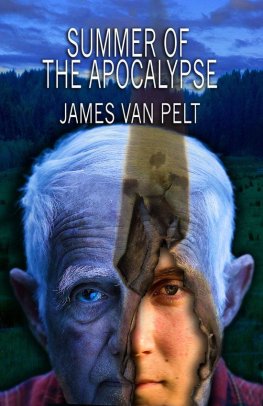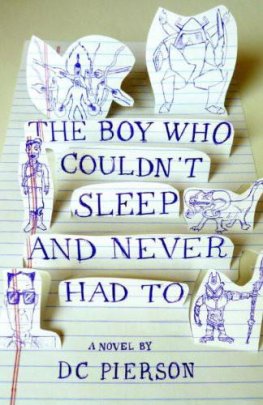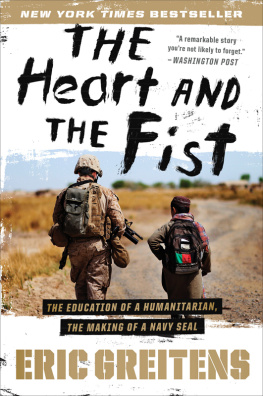
This book is a work of fiction. Names, characters, places, and incidents either are products of the author's imagination or are used fictitiously. Any resemblance to actual events or locales or persons, living or dead, is entirely coincidental.
IN THE YEAR 2000
A Day in April
Sleep failed him more often now, not once or twice a week but four times, five. What did he do when this happened? He did not take long walks into the scrolling dawn. There was no friend he loved enough to harrow with a call. What was there to say? It was a matter of silences, not words.
He tried to read his way into sleep but only grew more wakeful. He read science and poetry. He liked spare poems sited minutely in white space, ranks of alphabetic strokes burnt into paper. Poems made him conscious of his breathing. A poem bared the moment to things he was not normally prepared to notice. This was the nuance of every poem, at least for him, at night, these long weeks, one breath after another, in the rotating room at the top of the triplex.
He tried to sleep standing up one night, in his meditation cell, but wasn't nearly adept enough, monk enough to manage this. He bypassed sleep and rounded into counterpoise, a moonless calm in which every force is balanced by another. This was the briefest of easings, a small pause in the stir of restless identities.
There was no answer to the question. He tried sedatives and hypnotics but they made him dependent, sending him inward in tight spirals. Every act he performed was self-haunted and synthetic. The palest thought carried an anxious shadow. What did he do? He did not consult an analyst in a tall leather chair. Freud is finished, Einstein's next. He was reading the Special Theory tonight, in English and German, but put the book aside, finally, and lay completely still, trying to summon the will to speak the single word that would turn off the lights. Nothing existed around him. There was only the noise in his head, the mind in time.
When he died he would not end. The world would end.
He stood at the window and watched the great day dawn. The view was across bridges, narrows and sounds and out past the boroughs and toothpaste suburbs into measures of landmass and sky that could only be called the deep distance. He didn't know what he wanted. It was still nighttime down on the river, half night, and ashy vapors wavered above the smokestacks on the far bank. He imagined the whores were all fled from the lamplit corners by now, duck butts shaking, other kinds of archaic business just beginning to stir, produce trucks rolling out of the markets, news trucks out of the loading docks. The bread vans would be crossing the city and a few stray cars out of bedlam weaving down the avenues, speakers pumping heavy sound.
The noblest thing, a bridge across a river, with the sun beginning to roar behind it.
He watched a hundred gulls trail a wobbling scow downriver. They had large strong hearts. He knew this, disproportionate to body size. He'd been interested once and had mastered the teeming details of bird anatomy. Birds have hollow bones. He mastered the steepest matters in half an afternoon.
He didn't know what he wanted. Then he knew. He wanted to get a haircut.
He stood a while longer, watching a single gull lift and ripple in a furl of air, admiring the bird, thinking into it, trying to know the bird, feeling the sturdy earnest beat of its scavenger's ravenous heart.
He wore a suit and tie. A suit subdued the camber of his overdeveloped chest. He liked to work out at night, pulling weighted metal sleds, doing curls and bench presses in stoic repetitions that ate away the day's tumults and compulsions.
He walked through the apartment, forty-eight rooms. He did this when he felt hesitant and depressed, striding past the lap pool, the card parlor, the gymnasium, past the shark tank and screening room. He stopped at the borzoi pen and talked to his dogs. Then he went to the annex, where there were currencies to track and research reports to examine.
The yen rose overnight against expectations.
He went back up to the living quarters, walking slowly now, and paused in every room, absorbing what was there, deeply seeing, retaining every fleck of energy in rays and waves.
The art that hung was mainly color-field and geometric, large canvases that dominated rooms and placed a prayerful hush on the atrium, skylighted, with its high white paintings and trickle fountain. The atrium had the tension and suspense of a towering space that requires pious silence in order to be seen and experienced properly, the mosque of soft footfall and rock doves murmurous in the vaulting.
He liked paintings that his guests did not know how to look at. The white paintings were unknowable to many, knife-applied slabs of mucoid color. The work was all the more dangerous for not being new. There's no more danger in the new.
He rode to the marble lobby in the elevator that played Satie. His prostate was asymmetrical. He went outside and crossed the avenue, then turned and faced the building where he lived. He felt contiguous with it. It was eighty nine stories, a prime number, in an undistinguished sheath of hazy bronze glass. They shared an edge or boundary, skyscraper and man. It was nine hundred feet high, the tallest residential tower in the world, a commonplace oblong whose only statement was its size. It had the kind of banality that reveals itself over time as being truly brutal. He liked it for this reason. He liked to stand and look at it when he felt this way. He felt wary, drowsy and insubstantial.
The wind came cutting off the river. He took out his hand organizer and poked a note to himself about the anachronistic quality of the word skyscraper. No recent structure ought to bear this word. It belonged to the olden soul of awe, to the arrowed towers that were a narrative long before he was born.
The hand device itself was an object whose original culture had just about disappeared. He knew he'd have to junk it.
The tower gave him strength and depth. He knew what he wanted, a haircut, but stood a while longer in the soaring noise of the street and studied the mass and scale of the tower. The one virtue of its surface was to skim and bend the river light and mime the tides of open sky. There was an aura of texture and reflection. He scanned its length and felt connected to it, sharing the surface and the environment that came into contact with the surface, from both sides. A surface separates inside from out and belongs no less to one than the other. He'd thought about surfaces in the shower once.
He put on his sunglasses. Then he walked back across the avenue and approached the lines of white limousines. There were ten cars, five in a curbside row in front of the tower, on First Avenue, and five lined up on the cross street, facing west. The cars were identical at a glance. Some may have been a foot or two longer than others depending on details of the stretch work and the particular owner's requirements.
The drivers smoked and talked on the sidewalk, hatless in dark suits, sharing an alertness that would be evident only in retrospect when their eyes went hot in their heads and they shed their cigarettes and vacated their unstudied stances, having spotted the objects of their regard.
For now they talked, in accented voices, some of them, or first languages, others, and they waited for the investment banker, the land developer, the venture capitalist, for the software entrepreneur, the global overlord of satellite and cable, the discount broker, the beaked media chief, for the exiled head of state of some smashed landscape of famine and war.
Next page

